By Cansu Yiğit
“Our plan A is to live and die in Libya. Our plan B is to live and die in Libya. Our plan C is to live and die in Libya.”
This was the answer given by Saif al-Islam Gaddafi, 10 years ago, when the Arab Spring was throwing Libya into chaos and preparing the ground for a NATO intervention. The journalist Cüneyt Özdemir from CNN Türk had asked during those days Gaddafi the questions: “What is the Gaddafi family’s plan B? Do you consider leaving the country?”
10 years later, Saif al-Islam, son of the killed Libyan leader Muammar Gaddafi, is one of the most popular candidates for elections of December 24 – if these will be hold.
After the lynching of his father, Saif al-Islam had declared, “to fight the rebels till the end”. He was then captured and held hostage 6 years long by the organization Abu Bakr al-Siddiq in the city of Zintan. A court in Tripoli condemned him in absence to the death penalty due to war crimes committed in 2011. The International Criminal Court (ICC) maintains an arrest order against him due to the accused methods he applied when suppressing the insurgency in 2011.
The best suit off, the traditional tunic on
Gaddafi was released in 2017 following an amnesty and long time remained silent. But his statement of “being back”, declared in July via the New York Times[i], has not surprised anyone who is following Libyan politics closely. Saif al-Islam had no official position in his father Muammar Gaddafi’s government, but he was widely seen as the heir to power. He played an important role in Libya’s rapprochement to the West from 2000 to 2011. Having graduated from the London School of Economics, Saif al-Islam was called “Libya’s face looking West”. He was directing Libya’s reform policies.
But instead of the Western best suit of 10 years ago, today he wears his father’s traditional tunic.
Gaddafi started his “process of come back” by presenting himself to the election center in Sabha on November 14. He personally filled out all necessary forms to take part in the December 24 elections, while wearing his traditional tunic and carrying a long beard.
Libyan courts rejected approving his candidacy with reference to given court judgments on November 24. But Gaddafi objected to the ruling, in spite of armed groups under General Haftar’s command trying to stop him, and the Court of Appeal in Sabha accepted his objection at the beginning of December. Thus, nothing stood in the way of Saif al-Islam Gaddafi’s candidacy anymore.
Uncertainty of December 24
Still, though the elections are just a few days ahead, a conclusive list of candidates has not been published yet. If one of the candidates fails to achieve the majority on December 24, a second round of elections will be held. Of course based on the assumption that a first round of elections takes place and the candidates accept the results.
For the time being, both are questionable. The current uncertainty has lowered the chance of holding correct elections to nearly zero. The House of Representatives (HoR) under the leadership of Agiula Saleh has passed a highly debated electoral law, which the Tripoli government does not accept. Elections based on this law do not have the chance to deliver correct results.
Tripoli on the other side demands that the elections should be postponed until a new constitution is prepared, but such a scenario will surely lead to new debates of legitimacy.
In both cases, Tripoli and Benghazi seem both to have prepared already before the elections the arguments, on which they will blame each other.
The Turkish Anadolu Agency’s Libya correspondent Mücahit Aydemir thinks that a postponement of the elections has become inevitable. He commented to UWI on the situation the following: “The time for the elections has arrived. But instead of an election campaign atmosphere prevailing, discussions on the elections and the way they are held is continuing without result. At this point, a new electoral calendar and plan may enter into force on the initiative of the HoR, the High National Elections Commission (HNEC) and possibly the High Council of State. Or, if there is no compromise on the calendar, the country may enter a new period of political chaos”.
Three regions and three candidates
Everybody was focused on the struggle between the two political poles of Tripoli and Benghazi. But though not much noticed, slowly but surely Fizzan has started to become a third center of gravity. This third pole, known for its support to the Gaddafi family, had not been invited to the negotiations in Morocco in 2015. But Fizzan did take part in the UN-led negotiations in Tunisia in November 2020. Omar Abu Sharida, a name close to Saif al-Islam Gaddafi, had become a candidate for the Presidential Council of Fizzan. In the second round of elections, the list including Sharida finished third. With the candidacy of Gaddafi, this third pole seems to have come out very clearly.
Besides of Prime Minister Abdul Hamid Dbeibeh and Benghazi-candidate Khalifa Hafter, Saif al-Islam Gaddafi is considered the third candidate with the greatest chance to win the elections. The dominance of Dbeibeh and Hafter is not surprising, when one considers that they have taken important posts in the post-Gaddafi era, commanded armed forces and enjoyed international support from different sides. The surprising element is that Gaddafi’s name is pronounced as the “most popular candidate” on their side.
10 years of endless chaos
There are some reasons in favor of Gaddafi. First of all, Libya has not recovered still, 10 years after NATO bombs rained on the country. Lots of Libyans express desire for the Gaddafi era’s economic stability and service infrastructure at least, an era that Saif al-Islam represents today as the former heir. It also might be that Libyans are fed up from the endless fighting and the negotiations that not even achieved a minimum of compromise, where the name of Gaddafi receives a new shine.
Secondly, the Gaddafi family still has loyal supporters. The Gaddafis enjoy the support of various tribes in the cities of Sirte, Bani Valid, Braq esh-Shati and Djebel Garb.[ii] Press already reported of Libyan tribes’ efforts to bring Gaddafi family members back to the country, organizing even campaigns.[iii]
Mücahit Aydemir has the following explanation why the name of Gaddafi is gaining ground: “Saif al-Islam has a different, peculiar crowd of lovers and supporters. We can divide them into two groups: The first is the tribal support from Sabha and around. But the population here is very limited in comparison to the big cities in the north. Secondly, the relative support in the cities. We can state that the 10-years-civil war, the instability and economic difficulties have caused certain nostalgia in parts of the population towards the old regime. Therefore, there are people who consider Saif al-Islam, the heir of the old regime, as the solution at this point.”
But, says Aydemir, is Gaddafi not a solution for Libya: “Saif al-Islam is a person wanted by the International Criminal Court for having committed war crimes. Besides, Abdul Hamid Dbeibeh has raised his own popularity very much since he became Prime Minister in February. Saif al-Islam needs chaos, instability and clashes in the country to become more popular. Dbeibeh on the other hand has introduced social policies, has established financial support packages and projects of ‘back to life’, which demonstrated that Libya could well be governed by a civil and democratic political figure, underlining that a return to the old regime is not an option. I heard personally that even Libyan Political Dialogue Forum members from the east recognized Dbeibeh’s success in these matters. Though Hafter might not accept it, they stated that the population in the East regards an election of Dbeibeh positively.”
Russia and Egypt’s support
Thirdly, it is claimed that Russia and Egypt secretly favor a victory of Gaddafi. It was well known that, after being released in 2017, Gaddafi first contacted Russia. The Russian Deputy Foreign Minister Mikhail Bogdanov had stated already back in 2018 that Saif al-Islam Gaddafi should play a role in Libya’s political life.[iv] Russia was also the first country to host officially the representatives of the ‘Gaddafi Movement’.[v] Russian authorities also made statements that Gaddafi’s candidacy should not be blocked. Lastly, the Russian Foreign Minister Lavrov stated the following: “The Libyan people should choose the most appropriate candidate for itself, even if the candidate is Saif al-Islam Gaddafi. As with Hafter and the other candidates, lots of Libyan citizens are devoted to Gaddafi and his son. This issue should be left over to the choosing of the Libyan people.”[vi]
And than there is Egypt. After Hafter, formerly supported by Egypt, has entered into close engagement with the UAE, Cairo has given green light to the ‘Gaddafi Option’. It was reported that Gaddafi travelled to Egypt and met with Egyptian President Abdulfattah al-Sisi, before announcing his candidacy on November 14.[vii]
Another well known fact is that those armed groups, which supported Muammar Gaddafi till the very last moment have joined Hafter afterwards. Saif al-Islam Gaddafi’s candidacy thus additionally weakens Haftar’s position. Exactly here it should be noted that Haftar’s supporters stormed the election office, where Gaddafi had presented his objection to being rejected as a candidate.
Mücahit Aydemir emphasizes that Gaddafi’s appearance as a third force cannot have taken place in opposition to Russia: “During the Libyan dialogue and the parallel evolving election process, Russia always emphasized that ‘supporters of the former regime’ should be included. The main actor of reference was of course Saif al-Islam Gaddafi. In Libya’s south (Fizzan), there are tribes that have a familiar connection to Gaddafi, and he enjoys a certain base of supporters. The recent clashes in the city of Sabha with forces of Haftar additionally indicate the possibility that Gaddafi emerges as a third military power on the Libyan theater. It is of course unthinkable that these developments in the field of security take place in opposition to Russia. This all shows that Russia has extended its protection over both, Hafter and Gaddafi in the election process and the balance of power to be established afterwards, with Moscow possibly preferring one over the other later on.”
Turkey keeps the channel of dialogue open
It is not known whether Saif al-Islam has had any contact with Turkey, Tripoli’s ‘official’ ally. Although continuing a strategic alliance with Tripoli, Turkey in difference to the past years keeps the channels of communication open to all actors. There are indications of communication between Gaddafi and Turkey, although these might have taken place indirectly. Muammar Gaddafi’s other son, Sadi, was released in September 2021 following negotiations in which Tripoli’s leader Dbeibeh also took part. Sadi than travelled to Turkey, while Dbeibeh stated concerning his release “progress was impossible without compromise”.
Mücahit Aydemir points out that Turkey does not follow the policy of intervening into the Libyan elections. Quite the contrary, Ankara keeps the door of dialogue open to actors in Libya’s east too: “We observe that the Turkish Foreign Ministry does not endorse any of the actors in Libya’s elections. All their statements underline simply the need for a just, transparent, and compromise-led electoral process. Maybe the explanation is as follows: There is an election process, that’s judicial base is highly disputed, and a healthy election is not very likely to take place under these legal and security conditions. Besides, while the elections are less than a week ahead, not even the official lists for candidate have been published. All these aspects represent expected problems, and Turkey has never taken an interventionist approach that might have led to any further discussion. Notwithstanding, we observe that Turkeys policy of rapprochement with regional powers such as Egypt and UAE has also positive reflections on Libya. Accordingly, President Erdoğan has received the HoR Deputy Chairman and spokesperson Fawzi al-Nuwairi and his delegation on December 15. This was an important visit in so far, as there were several names in the delegation of al-Nuwairi from the Haftar-controlled east of the country and from the political wing of Aguila Saleh. The visit shows that Turkey on one hand protects the strategic alliance of Turkey with the internationally recognized government in Tripoli and on the other keeps the door open to dialogue with actors in the East during this atmosphere of highly debated elections.”
No easy solution
It is still uncertain whether Gaddafi will have any political role in the future of the country, and if so, what this role will be. But the arrival of a person from Gaddafi’s family to Libya’s government, dressed up like 10 years ago in a brown, traditional tunic and a long beard would without doubt would mean a change of axis of 180 degrees. Such a development would constitute another humiliation in NATO’s report card, just after the debacle in Afghanistan. Time will tell whether the Libyan people will consider the past 10 years as “commercial break”, returning the former regime, or whether it will head to new options.
Be it Dbeibeh, Haftar, Gaddafi, o another name not mentioned yet at all…Who ever gets to the presidency, there is not an easy solution for Libya. Even if the elections are held without further interruption and disturbance, and political compromise follows, still the establishment of a central government, the collections of all arms in the country within one institution and the efforts of reconstruction will keep Libya busy for many years ahead. But all these issues will make it onto the agenda only if and once the country achieves unity.
[i] https://www.nytimes.com/2021/07/30/magazine/qaddafi-libya.html
[ii] https://www.aa.com.tr/tr/dunya/libyada-devrik-lider-kaddafinin-oglu-seyfulislam-baskanliga-aday-olabilecek-mi/2147858
[iii] https://turkish.aawsat.com/home/article/2749081/kaddafi-destekçileri-oğul-seyfulislam’ın-gelecek-seçimlere-katılması-çağrısında
[iv] https://www.reuters.com/article/us-russia-libya-idUSKCN1OO0D4
[v] https://arabic.rt.com/middle_east/1192531-بوغدانوف-يستقبل-ممثلين-عن-حركة-سيف-الإسلام-القذافي/
[vi] https://turkish.aawsat.com/home/article/3362956/rusya’dan-seyfülislam-kaddafinin-seçimlerde-aday-olmasına-destek
[vii] https://www.libyanexpress.com/saif-gaddafi-secretly-visited-egypt-for-meeting-with-el-sisi/







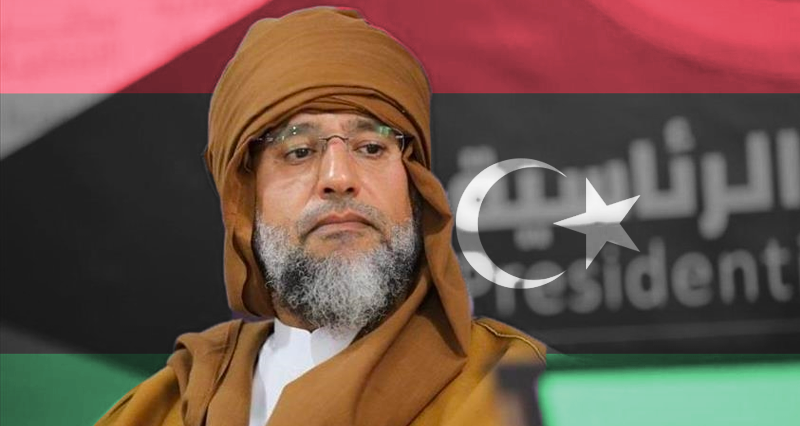

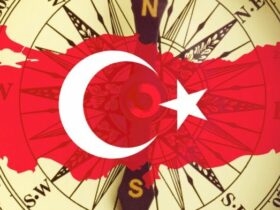

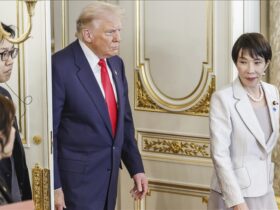
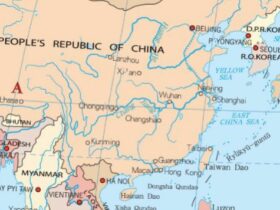
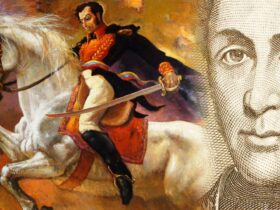

Leave a Reply